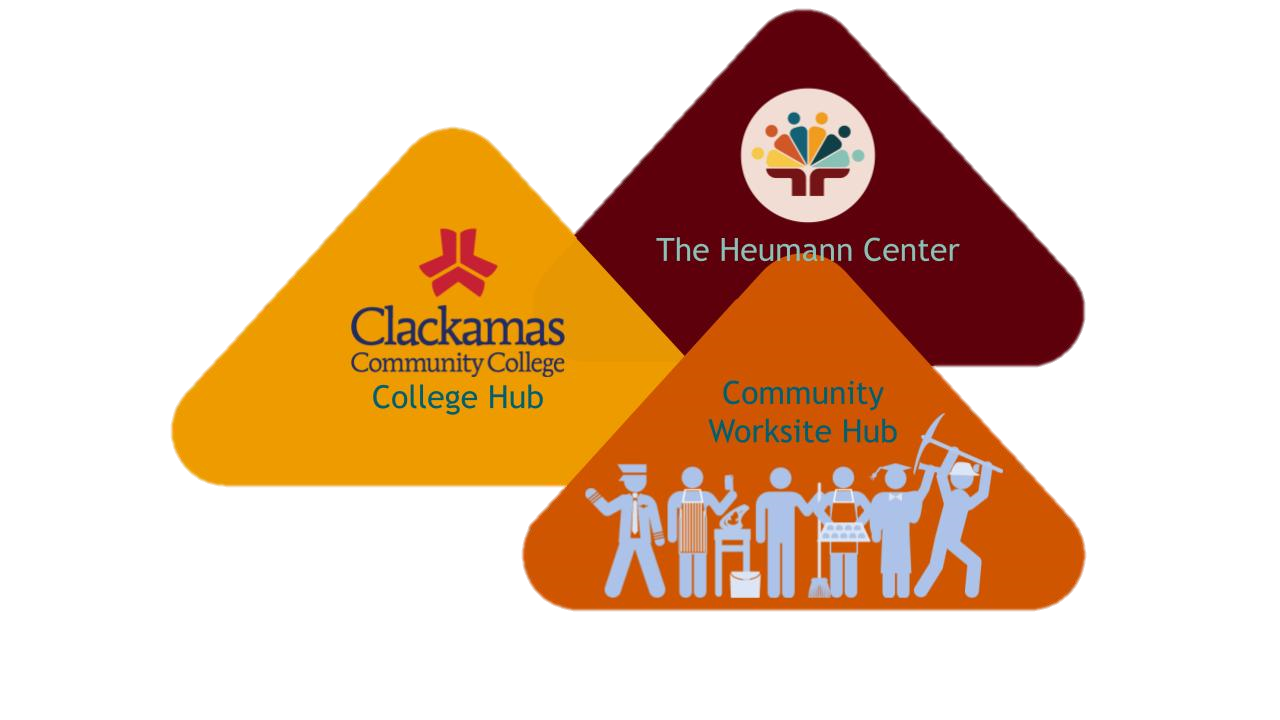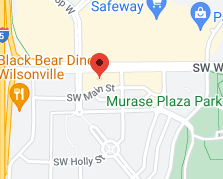- West Linn - Wilsonville School District
- Special Education Programs & Services
- Adult Transition Services (18-21)
Student Services
Page Navigation
Adult Transition Services (18-21)
-
Adult Transition & The Judy Heumann Center

“Diversity is a strength, and inclusion is a choice. Choose wisely and let compassion guide you” - Judy Heumann
Guiding Principles
Graduation from high school is an exciting time for many families and students—full of possibilities, opportunities, and uncertainties. Throughout the school years, from Kindergarten to 12th grade, school structures are relatively consistent and predictable, with necessary flexibility and individualization for students served by special education. However, as students move beyond high school, the range of possibilities and experiences becomes much wider and more complex. You may find yourself asking, "What will happen after high school?"
Adult Transition Services (ATS) are here to support students with disabilities who have graduated from high school with an alternative diploma or certificate, as well as those who have left high school without earning a completion document. ATS is designed to facilitate the transition from school to post-school life for young adults up to age 21. Our curriculum and activities focus on helping students develop the essential skills needed to become successful adults in their home, community, and workplace.
Amazing things happen with our Adult Transition Services at The Judy Heumann Center. The students helped artist Kyle Holbrook of the MLK Mural Project design and paint a mural in the center that highlights what Adult Transition is all about and the legacy of disability rights activist, Judy Heumann. It shows the growth of our students as well as the community they help to inspire. Hear from Kyle about why this mural was so special and from the students who are taking so much pride in a mural that will be seen for years to come.
A Student-Centered Approach Across Our Three Hubs for Adult Transition

At ATS, we ensure our curriculum and activities are tailored to each student's vision for life after school. Our student transition plans are crafted with a focus on student's interests, preferences, and needs, utilizing a collaborative team approach. ATS is dedicated to continuous skill development that supports IEP goals. Post-secondary education, college courses, employment, daily/independent living, and community participation are hallmarks in our three Hubs of Adult Transition.
The Judy Heumann Center
The Judy Heumann Center serves as our home base hub, embodying the spirit and legacy of an iconic advocate. Here, students learn the importance of self-advocacy and rights, leadership to empower themselves and others, and the values of perseverance, empathy, and education. This hub is also a place where students build community with one another, develop and practice peer relationships and social skills, and experience the importance of the family we create together. Naming our foundational hub after Judy Heumann is an honor, as her activism and dedication continue to inspire our mission. Please see below for Judy Heumann's Biography and why she is an instrumental namesake for Adult Transition and Disability Rights.
About Judy Heumann
-
Judith “Judy” Heumann has been a part of almost every pivotal moment in the disability rights movement. Considered “the mother” of the movement, she was a tireless advocate for the disabled community. Heumann improved accessibility and opportunities for the estimated 56 million people in the United States and one billion people around the world with disabilities. Judy Heumann was born in 1947 in Brooklyn, New York. Her parents, Wener and Isle Heumann, were German Jewish immigrants who emigrated to the United States in the mid-1930s. When Heumann contracted polio at age two, there was no vaccine, and she lost her ability to walk. Heumann’s parents did not know about access for disabled children or what types of accommodations would or would not be available. When Heumann attempted to start kindergarten, the principal physically blocked the family from entering the school. Due to her mother’s tenacity, Heumann was eventually able to attend a special school and a public high school. After graduation, Heumann went to Long Island University in Brooklyn where she organized students to start demanding ramps for access to classrooms. She graduated with a B.A. in 1969.In her twenties, she battled the New York Board of Education (NYBOE) when they refused to give her a teaching license because they were afraid she could not evacuate herself or her students in case of a fire. She sued and the NYBOE settled; she got a job and became the first teacher in the state to use a wheelchair. She also took part in a series of demonstrations including: shutting down Manhattan traffic to protest President Nixon’s veto of the 1972 Rehabilitation Act, and launching a 28-day sit-in at a federal building in San Francisco to get crucial sections of Rehabilitation Act enforced. While in San Francisco, she was instrumental in founding the Berkeley Center for Independent Living and helped launch the Independent Living Movement. She also graduated from the University of California, Berkley with a Master’s in Public Health in 1975.
In 1983, Heumann co-founded the World Institute on Disability (WID), one of the first global disability rights organizations founded and led by people with disabilities. Moving to Washington, D.C., Heumann served as the Assistant Secretary of the Office of Special Education and Rehabilitation Services in the Clinton Administration from 1993-2001. From 2002-2006 she worked at the World Bank as their first Advisor on Disability and Development. In 2010, Heumann became the first Special Advisor on Disability Rights for the U.S. State Department. Appointed by President Obama, Heumann worked to make disability rights part of the State Department’s agenda and pushed for an international version of the Americans with Disabilities Act (ADA). Heumann fought for all, and her work has been recognized through numerous awards. Heumann and her husband, Jorge Pineda, who also uses a wheelchair due to a spinal cord injury, lived in Washington, D.C., where she continued her advocacy until her death on March 4, 2023.This information was curated by the National Women's History Museum
-
Clackamas Community College Hub
At the Clackamas Community College Hub, we uphold the belief that every student has the right to attend college, explore diverse learning opportunities, and fully engage in the college campus experience. Each semester, our students have the opportunity to enroll in a class at Clackamas Community College, fostering their academic growth and integration into the college environment.
One of our students said this about her Clackamas Community College experience, "[E]veryone is different and it seems a more diverse community than anywhere else in the state. The image of a ‘typical’ college student fits exactly the kind of person I believe myself to be, because there no longer is a typical for college students, IT IS EVERYONE, anyone from any background or lifestyle can be a college student. ‘College student’ just ends up being no more than a title, it means nothing to those who are inside the community it creates. To the individual however, being a college student can be scary, exciting, and something to be proud of. It makes me feel good because I know I am working towards an end goal and have a visible way to achieve that goal."
Community Worksites
Community Worksites play a pivotal role in our students' journey towards independence. These hubs provide opportunities to gain new skills, explore personal preferences, and secure meaningful employment. Our Adult Transition team collaborates with various worksites in West Linn and Wilsonville, offering students the chance to learn and develop a wide range of vocational skills in real-world settings.
Key Components of Adult Transition
Delivery Model
Specific services vary depending upon a student's individualized transition plan and Individualized Education Plan (IEP). Services are typically delivered in a classroom and/or a community setting. Service time varies depending on the individual IEP and transition plan.The Judy Heumann Center
If you are interested in learning more about Adult Transition Services in West Linn-Wilsonville, please contact:
- Cheri Canfield | Teacher: canfielc@wlwv.k12.or.us
- Karin Tucker | Teacher: tuckerk@wlwv.k12.or.us
- Zach Deets | Instructional Coordinator: deetsz@wlwv.k12.or.us
- Calley Owings | Assistant Director for Student Services: owingsc@wlwv.k12.or.us
Resources
- Planning My Way to Work - This document, published by the Oregon Council on Developmental Disabilities is a very helpful tool for students and families as they think about preparing for employment after school services end.
- Clackamas County Developmental Disabilities - Services for students and young adults with developmental disabilities in Clackamas County
- FACT - Family and Community Together is a great resource for students, young adults and parents who experience disability
- Information about employment services to support students served by special education
- Vocational Rehabilitation (VR) - VR is a state agency that helps youth and adults with disabilities to overcome barriers to employment: VR website - Oregon DHS
FAQ
If I finished high school in another district and then moved to West Linn-Wilsonville, can I receive Adult Transition Services from the WLWV district?
Yes. If you are 18-21 years old, have completed high school with a Modified or Extended Diploma (or Alternate Certificate) and you still have an active eligibility for special education, you can receive Adult Transition Services. If you have copies of your IEP or other paperwork from your previous district, it would be really helpful to provide that information to the school when you enroll.
If I turn 21 during the school year, when do services end?
Adult Transition Services continue until the end of the school year during which a young adult turns 21. If you turn 21 after school starts in August/September, then you can continue to receive services until the end of the school year in June.
Do I need to attend Adult Transition Services for a full school day?
Adult Transition Services (ATS) are designed to be individualized to your needs. Some students attend Adult Transition Services for a full school day. Others choose to attend for a partial day. For example, one student may attend classes at ATS in the morning to learn budgeting skills, and then go to a part-time job in the afternoon. Another student may attend classes at Clackamas Community College three days a week and then come to ATS two days a week to work on independent living skills.

